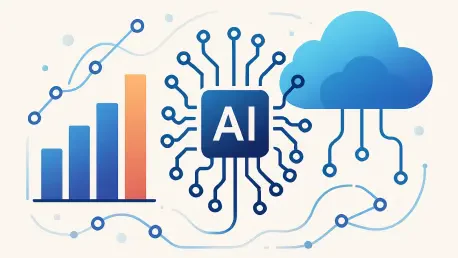I’m thrilled to sit down with Chloe Maraina, our esteemed Business Intelligence expert, whose passion for crafting compelling visual stories through big data analysis has made her a visionary in data management and integration. With a deep understanding of data science, Chloe brings invaluable insights into the evolving landscape of cloud computing and AI. Today, we’re diving into Cloudera’s recent acquisition of Taikun, exploring how this strategic move enhances data and AI capabilities across diverse environments. Our conversation will touch on the challenges of managing data in fragmented infrastructures, the innovative solutions this integration offers, and the broader implications for businesses aiming to streamline operations and future-proof their strategies.
Can you give us a broad picture of what Taikun adds to Cloudera’s portfolio through this acquisition?
Absolutely. Taikun brings a powerful platform for managing Kubernetes and cloud infrastructure across a variety of setups, including on-premises, edge, and multi-cloud environments. This acquisition enhances Cloudera’s ability to offer consistent, cloud-native operations everywhere, which is a game-changer for organizations looking to deploy data and AI workloads seamlessly, no matter where their data lives. It’s about creating a unified experience that simplifies complexity and boosts control over sprawling data estates.
What was it about Taikun’s technology or approach that made Cloudera see them as the right fit for this partnership?
Taikun stood out because of their advanced compute platform that delivers Kubernetes distributions and end-to-end applications with remarkable consistency. Their technology aligns perfectly with Cloudera’s vision of breaking down barriers in data management. What really caught our attention was how their solutions enable a seamless integration across diverse environments, which is critical for businesses juggling multiple infrastructures. It’s a natural extension of our mission to empower organizations with flexibility and control.
How does Taikun’s expertise in Kubernetes and cloud infrastructure support Cloudera’s overarching ambitions for data and AI?
Taikun’s strength in Kubernetes and cloud infrastructure is a perfect complement to Cloudera’s goals of enabling data anywhere and powering AI everywhere. Their platform allows us to provide a robust foundation for running data and AI applications consistently across any environment. This means we can better support complex workloads and ensure that our clients have the agility to scale their AI initiatives without being constrained by where their data resides. It’s about building a bridge between data and actionable intelligence, no matter the setup.
What are some of the biggest hurdles businesses face today when managing data across on-premises and multiple cloud environments?
One of the biggest challenges is the fragmentation of infrastructure. Companies often have data spread across on-premises data centers, various public clouds, and sometimes even isolated environments like air-gapped setups. This creates a patchwork that drives up operational complexity and costs while slowing down the ability to deploy critical initiatives. Businesses end up compromising on where workloads run, which can limit access to their full data potential or hinder analytics and AI systems from delivering comprehensive insights.
In what ways does Taikun’s technology address these challenges differently from existing solutions?
Taikun’s technology tackles these issues head-on by offering a unified interface and control plane that works across all environments. Unlike many solutions that are tailored to specific clouds or setups, Taikun enables a consistent deployment of data and AI applications, whether on-premises or in multi-cloud scenarios. This reduces the friction of managing disparate systems and provides a streamlined approach to updates and maintenance, setting it apart by prioritizing ease and adaptability for the end user.
You’ve mentioned a “unified, cloud-like experience” in any environment. Can you paint a picture of what that actually means for a customer?
Sure. Imagine a customer being able to manage their data and applications with the same simplicity and intuitiveness they’d expect from a public cloud, but in any environment—be it on-premises, a private cloud, or even a highly secure, isolated setup. This unified experience means they can deploy, upgrade, and maintain their systems through a single interface, without needing to adapt to different tools or processes for each location. It’s like having the convenience of the cloud everywhere, tailored to their specific needs.
How does this acquisition benefit customers operating in highly regulated or secure environments, such as government or air-gapped systems?
For customers in highly regulated or secure environments, this acquisition is a significant win. Taikun’s capabilities allow us to extend Cloudera’s platform to places like GovCloud, Sovereign Cloud, and air-gapped data centers without sacrificing functionality or security. This means these organizations can run their data and AI applications wherever they need to, maintaining strict compliance while still accessing best-in-class solutions for data management and private AI. It’s about ensuring they don’t have to trade security for innovation.
There’s talk of reducing the total cost of ownership with this integration. Can you explain how this actually lowers costs for businesses?
Absolutely. By integrating a Kubernetes-based compute layer directly into our platform, we simplify the entire process of deployment, upgrades, and maintenance across the stack. This reduces the need for multiple tools or specialized teams to manage different environments, cutting down on operational overhead. Additionally, harmonizing these processes minimizes errors and downtime, which can be costly. Essentially, businesses get a more efficient system that saves both time and money while handling large-scale data platforms.
Can you share your forecast for the future of data management and AI solutions in light of acquisitions like this one?
I see the future of data management and AI solutions moving toward even greater integration and flexibility. Acquisitions like this one signal a trend where platforms will increasingly aim to provide end-to-end, environment-agnostic experiences that break down silos. We’re likely to see more emphasis on seamless cloud-native operations, enabling businesses to harness AI and data insights without infrastructure constraints. My forecast is that within the next few years, the industry will pivot toward fully unified systems that prioritize adaptability, security, and cost-efficiency, empowering organizations to innovate at an unprecedented pace.









